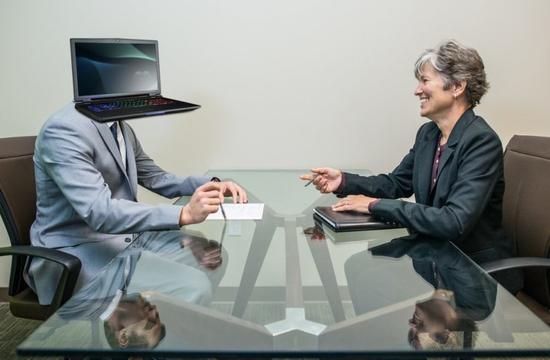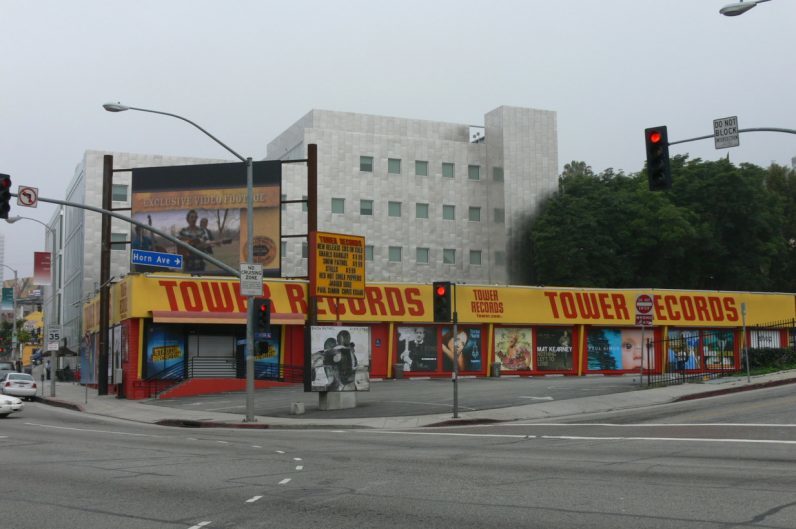
This article is produced by NetEase Smart Studio (public number smartman 163). Focus on AI and read the next big era!
[Netease smart news December 31 news] When I was a teenager, I often went to the local Tower Records shop on my way home from school. In that era, Tao Er Records was the first choice for all music. The budget for buying a CD is a huge expense, requiring me to ask parents for extra money every week. Buying music is too expensive. I bought the whole album, but I wanted to hear only one or two tracks. This situation made me feel a little deceived.
Raven Solomon, the founder of Pant Records, started his own record business in the 40s. The record store first began in his father's pharmacy (located behind the iconic Tower Theatre building in Sacramento). He did a good job. In his prime, Amoy Records gradually grew into a big company with an annual income of more than 1 billion U.S. dollars and spread across hundreds of stores around the world, including one next to my parents' home. The Pantry album focuses on increasing the company’s revenue by selling more CDs and opening new stores, but they do not know that scientific discovery beyond 5,000 miles will forever change the music world and will also change the fate of their company.
On November 26, 1996, Bernhard and several of his colleagues at the Fraunhofer Institute for Integrated Circuits in Erlangen, Germany applied for a patent for a revolutionary new digital audio format called MP3. . Then there is Bitstream and Piracy, iPod and iTunes. A few years later, Tao Er Records filed for bankruptcy. Russ's company did a good job selling CD games. What he and his team could not foresee was the arrival of a new game, a game with different rules, for which they have no answer. The name of this new game is technological subversion. Whoever masters it can't stop it.

Your first billion
If you are fortunate enough to work in a startup company and a big company, you will know that there is a big difference between the two. When visiting a start-up company, you can't help but notice the magical atmosphere. Everyone has a strong passion, autonomy, creative thinking, sense of urgency, and execution speed. Smaller teams have these resources, but as start-ups become businesses and run slower and slower, people are becoming less numb.
When your company's income reaches one billion US dollars, how do you keep everyone's passion? How can you ensure that your team will find the "next MP3" in your industry?
To achieve this, there needs to be a way for people to focus on doing important things while maintaining an entrepreneurial atmosphere. It is very difficult to start when it is new, and it is even harder to achieve even larger scales. It is therefore necessary to establish a new type of organization. This form of organization draws on maturity and scale from large companies and draws on agility and enthusiasm from start-up companies. This is the next evolutionary step in the development of organizational forms. It is related to artificial intelligence.
Changes are coming soon
Think about what your life was like 25 years ago. No iPhone, no app store, no Facebook, no Amazon, no Twitter, no big data, no Google, no cloud, and certainly no artificial intelligence. Going back in the 90s, you can see when large US companies like insurance companies and banks were formed. At the time, executives had a simple formula—making money, hiring more people, making more money, and hiring more people.
However, the times are changing. Just as my old CD player is not being used, organizations that are unwilling to break this 100-year-old way of thinking will find it difficult to compete with new technology-based companies. The number of employees. Driverless cars, self-driving trucks, ships, and robotic warehouses will become an integral part of our lives. This is earlier than most of us realize.
Autopilot technology goes far beyond the elimination of operating machinery. It has the ability to start a new business model: without a driver, you don't need to own a car, parking lot, gas station, or garage. It will not only change the way we drive our cars, but it will also affect the way we design future streets, roads and cities.
However, artificial intelligence innovation still largely ignores one area: the organization itself.
If you spend most of the day in the office, think about the repetitive tasks you do every day: collect data, write reports, fill out forms, coordinate events, track progress, order things, sign documents, send purchase orders, etc. Wait.
Most of the tasks can be achieved by robots.
The rise of autonomous organizations
Future autonomous organizations will rely on artificial intelligence to run routine and complex tasks, which is better and cheaper than what we humans can do. Like the impact of driverless cars on our future cities, the rise of autonomous organizations may fundamentally change the way we look at organizational structures, governance, and hierarchies. Unable to adapt to this new form of senior management and team will soon fail to keep up with the times. Traditional managers hire more staff to solve scale problems, and future thinkers will employ product innovators, super engineers, and human/data scientists to help them develop smart, automated tools.
As a well-funded company, there is always the advantage of recruiting more employees. I found myself fighting every day with my own instincts. My co-founders Daniel and I often remind our team and investors that we want to build a company that is different. A company with fewer people and relying on more code (driven by a very clever, hand-picked group of people), this group of people jointly designed a lean David, not a barbarian giant.
As an innovator, when we think the team has deviated from this vision, or as Daniel said, when it comes to "black holes", our job is to retreat. This is the mediocrity and norm that we should be alert to. They are not independent and innovative. After all, it is these fears that have caused us to try to subvert the industry today.
The last word (careful)
Without caution and sensitivity is an imminent risk. I can imagine that in the near future, companies will gradually get rid of the human side and become more efficient. Such an organization can make people report to the robot manager. Robots constantly evaluate human performance and compare them with thousands of people who work in the same job. I don't want to live in a world where people are hired or fired by artificial intelligence.
Like other reforms in history, as we get stronger, we also become more vulnerable. Metal forging helped us build bridges and necessary tools but also brought swords and guns. Our study of chemistry brought about a revolution in medicine, but it also prompted us to manufacture weapons of mass destruction. The greater the power, the greater the responsibility. Entrepreneurs and thought leaders should rationally apply artificial intelligence techniques to create more space for humans, not vice versa.
(Selected from: thenextweb Author: SHAI WININGER compile: NetEase see foreign intelligence platform compiler revision: nariiy)
Pay attention to NetEase smart public number (smartman163), obtain the latest report of artificial intelligence industry.
Insulated Copper Tube Terminals
Insulated Copper Tube Terminals,High quality insulated terminal,copper tube terminal
Taixing Longyi Terminals Co.,Ltd. , https://www.longyiterminals.com